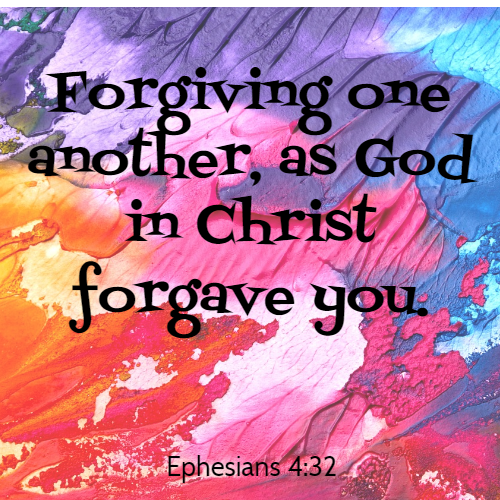How to FORGIVE


As believers we desire to be forgiven freely from God, but sometimes we struggle with freely forgive others. We may be tempted to think that forgiveness can be freely given for some things and not so much for other offenses. However, the truth is that if we don’t forgive—we do ourselves more harm than we do to those who’ve hurt us. A preacher once explained it’s like we drink the poison that we make for someone else. Or we build the maximum security prison and then lock ourselves in the deepest darkest part of it.
To forgive or not is still our choice. God didn’t make us clones or robots—He’s given us free choice. However, in giving us choice—He points us to the best choices all throughout His word. Learn how to FORGIVE:
F – Fix your attention more on God than the offense.
“Set your minds on things that are above, not on things that are on earth.” (Colossians 3:2)
When we are offended, our attention is immediately drawn to the source of our offense; however, our attention needs to be on God. We can ask Him the questions we have, we can vent our pain and frustration, and we can see His wisdom on next steps.
O – Obey God’s word on forgiveness.
“Forgiving each other; as the Lord has forgiven you, so you also must forgive.” (Colossians 3:13)
After sharing with God, our next choice is obedience. We choose forgiveness as an act of obedience and not based on our feelings. Jesus said if we love Him…we will keep His commandments.
R – Release the offense to the Lord.
“Beloved, never avenge yourselves, but leave it to the wrath of God, for it is written, “Vengeance is mine, I will repay, says the Lord.” (Romans 12:19)
After we’ve refocused on God and obeyed His command to forgive, we need to release this offense to God for Him to deal with the offender. Sometimes an offender will ask for our forgiveness, but sometimes they don’t and we need to be ready to turn them over to God.
G – Give forgiveness as you have received from God.
“For if you forgive others their trespasses, your heavenly Father will also forgive you, but if you do not forgive others their trespasses, neither will your Father forgive your trespasses.” (Matthew 6:14-15)
God forgives us freely—there’s no “I’ll forgive you if you…” Instead He forgives us and we are to forgive others in the same way. God’s forgiveness doesn’t erase the consequences of our sins. It’s the same with those we forgive—there may be consequences because of the sin—yet they are still forgiven.
I – Invite the Holy Spirit to heal your heart, mind, and body.
“For the kingdom of God is not a matter of eating and drinking but of righteousness and peace and joy in the Holy Spirit.” (Romans 14:17)
We need the power of the Holy Spirit to forgive offenders. Through Him we can receive the healing necessary to move on even though we don’t forget what was done to us. The sting from the offense can be removed sometimes immediately or over time.
V- Value and protect yourself if necessary by finding a safe place or creating distance.
“Because you are precious in my eyes, and honored, and I love you.” (Isaiah 43:4)
Just because we forgive our offenders doesn’t mean that we continue to put ourselves in abusive situations. This calls for wisdom, discernment, and godly counsel as God values each of His children.
E – Engage in prayer for those who’ve offended you.
“Bless those who curse you, pray for those who abuse you.” (Luke 6:28)
As we are forgiven by God and forgive others—He changes us to be more like His Son, Jesus Christ. We began to see people and the world as He sees them—and we can’t help but to pray for them.
Prayer
Dear Lord, with the help of Your Holy Spirit, I choose to forgive my offender. I trust You to heal me from the inside out and enable me to become more like Jesus Christ. In Jesus’ name, amen.
In His Service,

Republished by Blog Post Promoter







